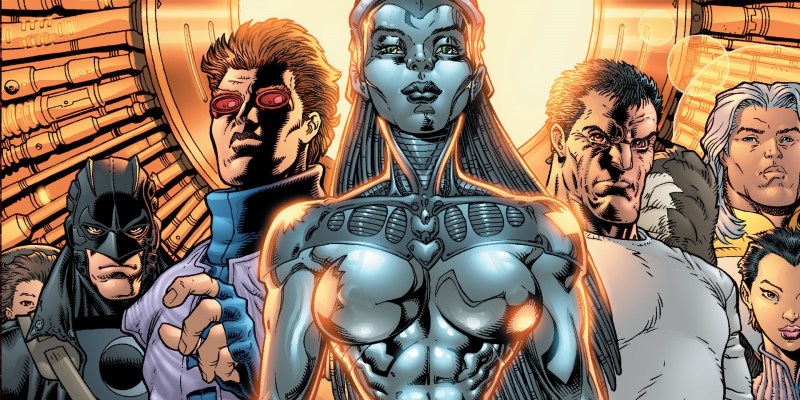James Gunn recently announced four new movies that will become the new bedrock of the DC Comics cinematic universe. There’s a Superman movie called Superman: Legacy, with a younger Superman living in Metropolis. There’s a Batman and Robin movie called The Brave and the Bold, based in part on the Grant Morrison and co. era of Batman stories involving Bruce’s biological son, Damian Wayne. There’s a Supergirl: Woman of Tomorrow movie, based on Tom King and Bilquis Evely’s comics. And lastly, there’s The Authority, based on the eponymous team made popular by Warren Ellis and Bryan Hitch.
You’ll be forgiven if you ask yourself what a lot of people have asked themselves: Who TF are the Authority?
The Origins in Stormwatch
In 1992, Image Comics cofounder Jim Lee founded the WildStorm imprint within Image, where his personal creations could live in a contained universe. WildStorm was a portmanteau of Jim Lee’s two flagship titles, WildC.A.T.s and, more importantly for the purposes of this writing, Stormwatch.
Stormwatch was a more classic interpretation of superheroes. It was a UN-backed group of superheroes made of different races, creeds, and ethnicities. For the first 30 or so issues, it was pretty typical fare for the ‘90s, and at times it was guilty of indulging in the worst tendencies of the decade. It meandered around the Mendoza Line of comics for a while until the old era ended with a WildStorm crossover called Fire from Heaven.
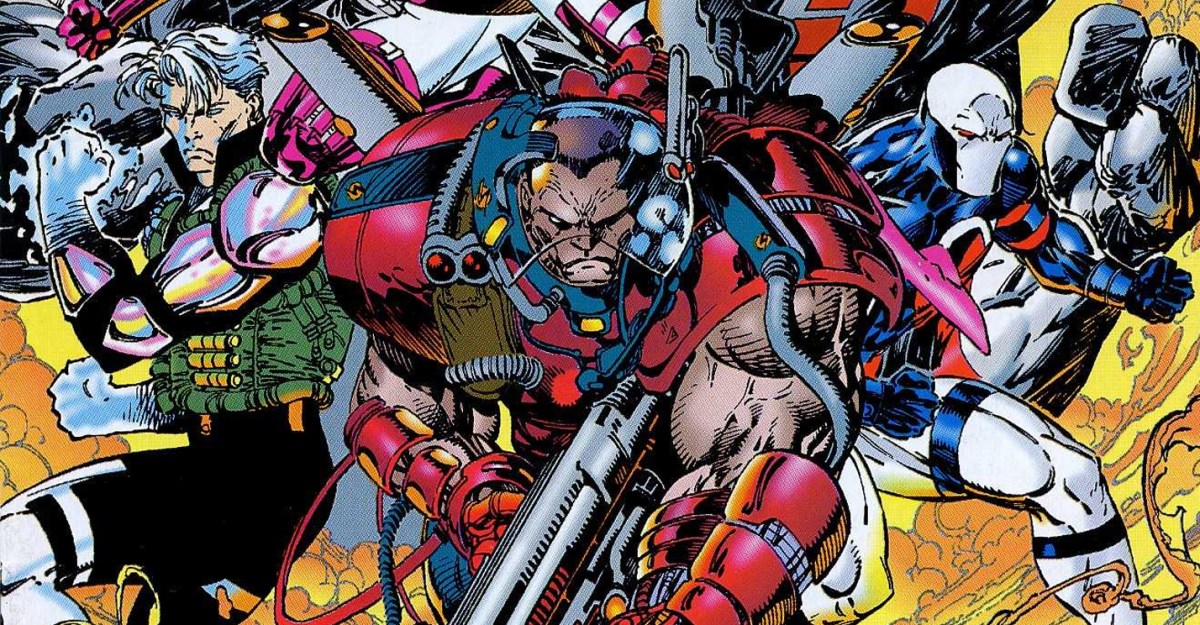
Then in July 1996, Stormwatch #37 changed everything. Writer Warren Ellis and artist Tom Raney (along with inker Randy Elliott, colorist Gina Going, and letterer Bill O’Neil) revamped the book with new characters, a new mission, and a new ruthlessness based on the twisted objectivism of its leader, Henry Bendix. Bendix divided Stormwatch’s roster into three subdivisions:
Stormwatch Prime would deal with meta/post-human threats that feel more traditional superhero — like giant monsters or aliens. Stormwatch Black would be the covert wetwork team that dealt in acts of subterfuge steeped in questionable legality. They did things like investigate police brutality and government spy programs, smothering fires before they got too big to handle. Finally, Stormwatch Red were the most powerful members, and they were billed as the team’s deterrent and retaliatory unit. If any country, faction, or individual steps out of line, Red shows up and punches you on the chin right through your heart.
From there… things get wild. For about 30 issues there are mind-bending revelations about the origin of certain members, aliens that break the language of reality, gay Batman and Superman analogues, a different Superman analogue that sat on a mountain for 10 years and designed a perfect world, a bioengineered fascist robot that quotes Nietzsche on a killing spree through the English countryside, double-crosses, psychic Japanese nationalist cultists, and blue half-alien Sicilian princes at war with England on a parallel world.
The characters go from a stereotypical regurgitation of more familiar comic concepts and tropes to an in-depth examination and rebuke of them. This felt like superheroes living in the real world and the ego it takes to control them. At one point the world is actually saved until the arrogance of one key Stormwatch member ruins paradise because they didn’t get to save the world their way.
When Stormwatch finally ended, it came crashing down in the most ‘90s way possible: aliens. Like, Ridley Scott / James Cameron Aliens Xenomorphs.
No, seriously.
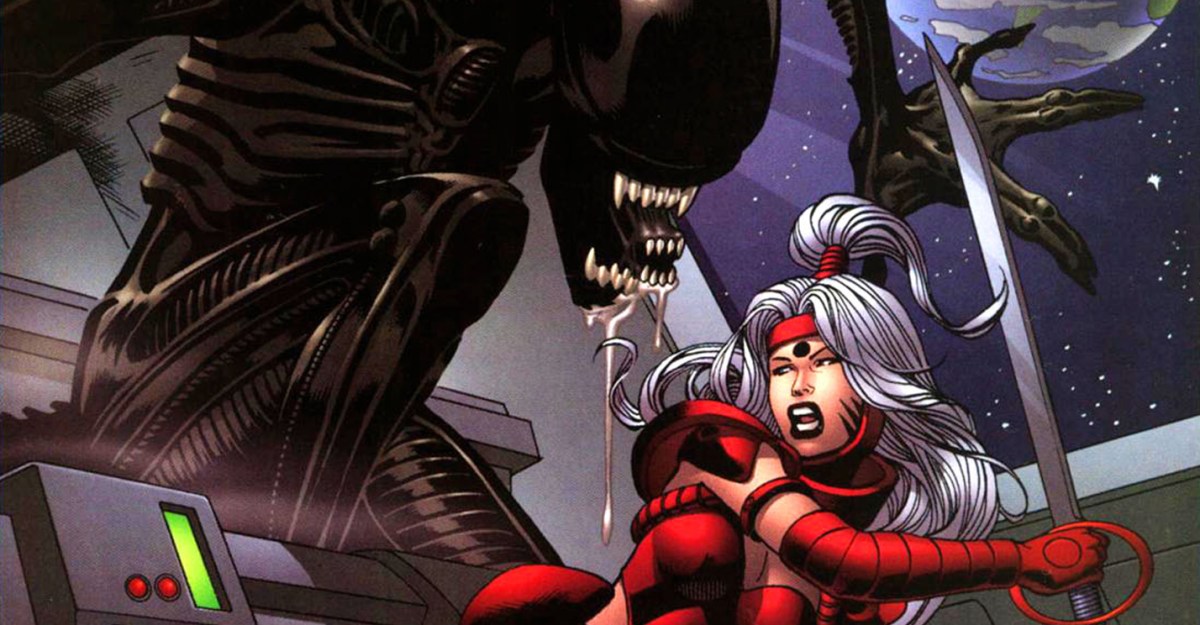
In a crossover comic drawn beautifully by Chris Sprouse and written by Warren Ellis, the WildC.A.T.s and Stormwatch came head to head with an extra-galactic asteroid that looked too refined to just be another rock. They sent out an exploratory team that was immediately overwhelmed and infected by facehuggers. Brought back to their floating satellite headquarters, things went ass up quickly. A lot of people died; in fact, most of Stormwatch did.
The old paradigm of UN-funded superheroes with an infinite budget of laser-toting soldiers and a fleet of space-capable fighter jets was a thing of the past. Jackson King, then acting head of Stormwatch, went from operating on a space satellite representing the UN’s interest to having an office the size of a closet. Tired of the same old status quo, the surviving members of Stormwatch Black decided that humanity deserved better, and they were the only people bold enough to deliver. They assembled a new team of familiar names with new faces.
Stormwatch was dead. Long live the Authority.
Explaining Who the Authority Are in the Comics
The key figure of the Authority was Jenny Sparks, an electricity-based superhero referred to as “The Spirit of the 20th Century.” She was born at midnight January 1, 1900 and stopped aging at 26. She had lived through all the ups and downs of the 1900s and decided in its last year that something had to be done about its problems. She had dalliances with princes from parallel Earths and tried to put superhero teams together in the past, but it never worked because no one was ever willing to go far enough. So she recruited a team made up of the world’s most unapologetic heavy hitters.
There’s the Engineer, a woman who replaced her blood with nanomachines and is capable of creating any mechanical device she can imagine. She’s one of the smartest, most creative post-humans on the planet. Her body can seemingly adapt to any situation through her own sheer ingenuity.
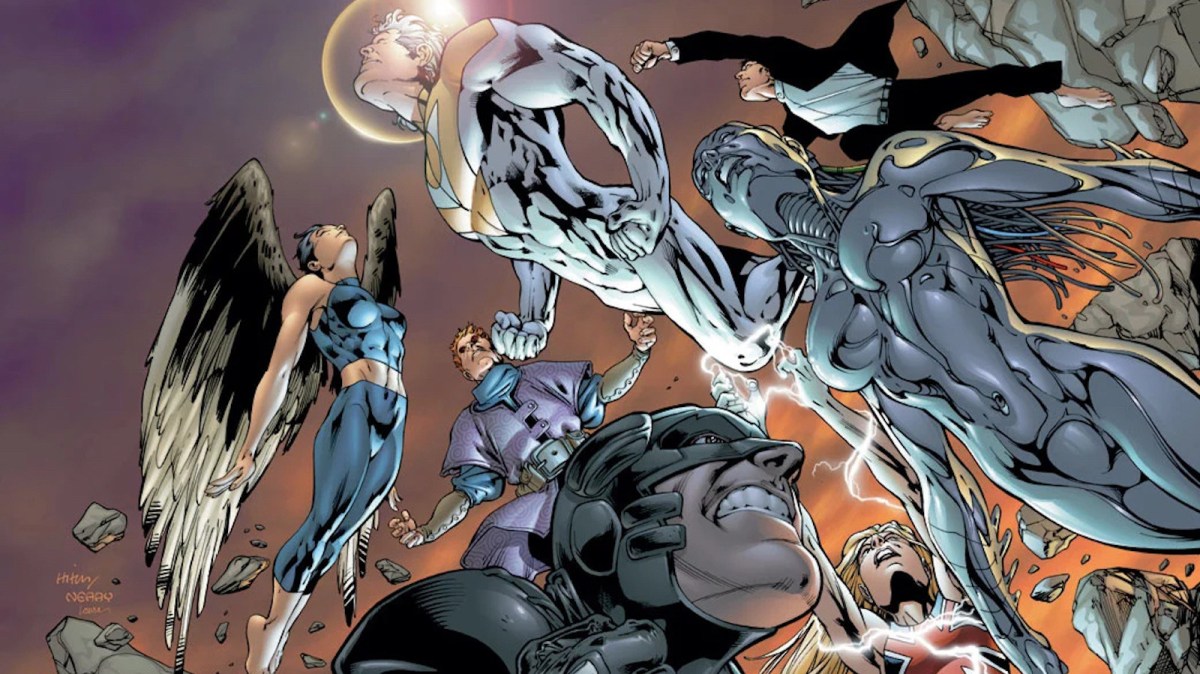
Swift is a Tibetan woman with exceptional strength, powerful talons, enormous wings, and general bird-like features. She is maybe the fastest mammal in existence. She’s incredibly strong and a strategic genius, often assuming leadership roles in the field.
The Doctor is the spiritual master of the planet and can access the knowledge of every past Doctor to the beginning of time. He’s also a drug addict with the power to reshape reality, so while he’s impressively powerful, he’s something of a glass cannon.
Jack Hawksmoor was a young boy abducted by aliens over the course of a decade and slowly had his internal organs replaced with synthetically enhanced xeno-organs. He’s been engineered to only survive in cities. He can read the memories of walls, breathe pollutants, and essentially teleport between them. He’s also exceptionally strong and is frequently seen kicking the heads off people.
Apollo is an analog for Superman. He is essentially the most powerful hero on the planet, nothing can slow him down, and a quick recharge in direct sunlight makes him full strength. He and his partner Midnighter were originally part of a secret Stormwatch team and ostensibly left out in the dark fending on their own for years before finding a place with Jenny Sparks and her team.
The Midnighter is an analog for Batman. He’s been cybernetically enhanced to be the ultimate strategist. He wins every fight before the first punch is thrown because he’s run through simulations of it a million times.
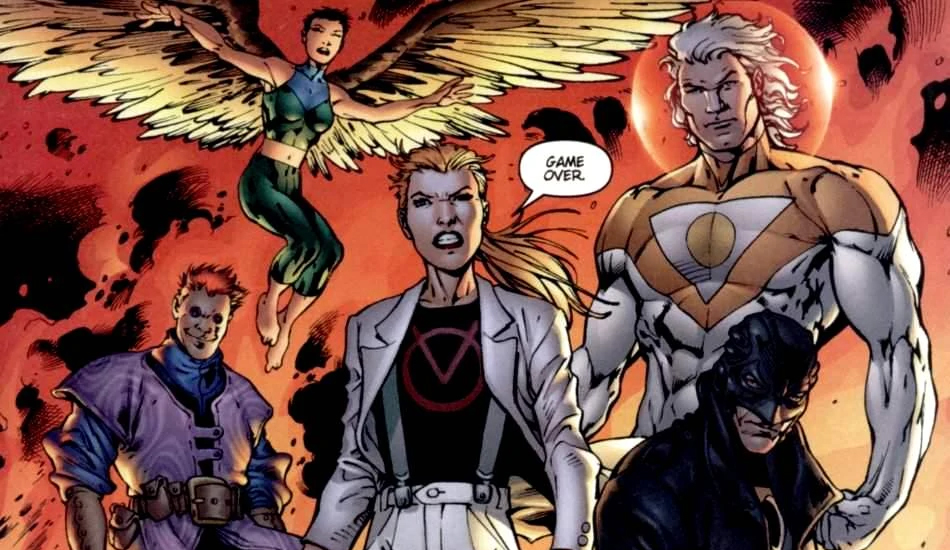
They live in a spaceship the size of a city (which is great for Jack) that was built to sail what’s known as “the Bleed,” the space between parallel universes. It essentially exists in all locations and times at once so it can instantaneously transport the Authority where they need to be when they need to be there. Everything works together smartly to set the Authority up to be the ultimate badasses, always with an answer to whatever world-ending threat comes their way.
The Authority aren’t the good guys. They aren’t some moral force that you aspire to. They are the schoolteacher who whips your knuckles with a ruler when you get out of line. Their aim isn’t necessarily to make the world better, as much as it is to keep people on their best behavior so humanity can progress naturally. They intervene when they see something especially messed up and course-correct it. When a group or faction or individual crosses a line, they hit them back harder; they’re a deterrent.
Talking about The Authority now feels strange. It’s like talking about Bob Gibson. Gibson was one of the most talented and productive pitchers in MLB history. He was so good that they literally changed the design of the mound to give those at bat a better chance of actually making a play. We don’t really talk about that now because it feels like ancient history, and The Authority comics are kind of the same way. They were so influential to how things became in the comic industry (which will be discussed in another article) that we recognize all of their influences but rarely give enough praise to the thing that created them. They changed not just individual books, like how The Ultimates owes itself to The Authority, but entire publishing initiatives simply wouldn’t exist without the work of artist Bryan Hitch and writer Warren Ellis.
It’s not shocking that The Authority is getting a DC movie. It’s shocking that it took so long.
